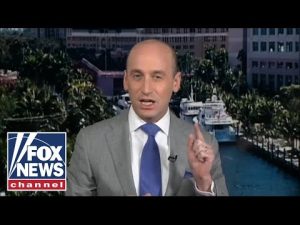An alarming sequence of technical failures during President Trump’s appearance at the United Nations has blown up into a full-blown controversy, with the president calling the incidents “triple sabotage” and demanding an investigation. Video shows the escalator carrying President Trump and the First Lady halt suddenly as they stepped on, his teleprompter failed shortly after he began speaking, and attendees reported audible problems in the hall. The president and aides say the timing and combination of these events warrant scrutiny and preservation of security footage.
The United Nations pushed back with a clear, technical explanation: its readout indicated the escalator stopped after a built-in safety mechanism was triggered when a videographer from the U.S. delegation ran ahead and then back down the escalator. U.N. spokespeople also noted the teleprompter was operated by the White House, and that interpretation earpieces routinely carry the audio for delegates in the chamber. These official statements do not erase legitimate questions about coordination, chain of custody, and how easily routine systems can be blamed for high-profile embarrassments.
White House Press Secretary Karoline Leavitt publicly demanded answers and called for accountability, saying that if the incidents prove to be intentional they should result in firings and investigations; she also said U.S. agencies, including the Secret Service, were looking into the matter. Conservative commentators and allies in Washington echoed the call for preservation of footage and a full accounting of how the President’s security and communications were compromised. The administration’s insistence on a thorough probe is not hysteria; it is a necessary response when the safety and dignity of the nation’s leader appear to be at risk.
Reports from several outlets cited leaked comments among U.N. staffers — including a Times of London item noting jokes about turning off escalators to make a point about funding cuts — which, if true, point to an institutional contempt that far too often goes unchecked. Whether casual sniping or deliberate sabotage, the broader pattern reveals an organization that views American influence as a punching bag rather than a partner. This is precisely why conservative demands for accountability, respect for sovereignty, and clear consequences at international bodies are not mere rancor; they are policy necessities.
Beyond the immediate spectacle, this episode exposes a deeper problem: when global institutions grow insulated from scrutiny, ordinary operational failures become politicized and the safety margins for heads of state shrink. The U.N.’s explanations may be technically correct, but they do not substitute for a transparent, independent review that addresses both the mechanical cause and the human context in which it occurred. Americans have the right to expect that their leaders will be treated with professionalism at every international forum and that any hint of targeted humiliation will be investigated and punished.
If the truth ends up being a string of mundane mishaps, so be it — but we should demand evidence, tape, and testimony before accepting a tidy narrative that absolves powerful institutions of responsibility. If there was malice, those responsible must face consequences; if there was incompetence, reforms must follow. Either way, this debacle should harden conservative resolve to insist that American leadership be defended, respected, and never left vulnerable to avoidable embarrassments on the world stage.







